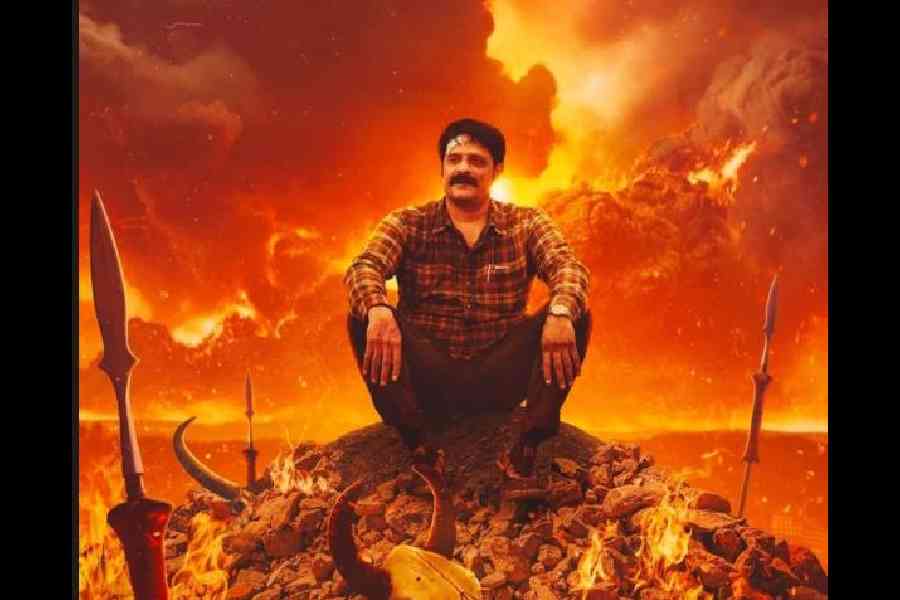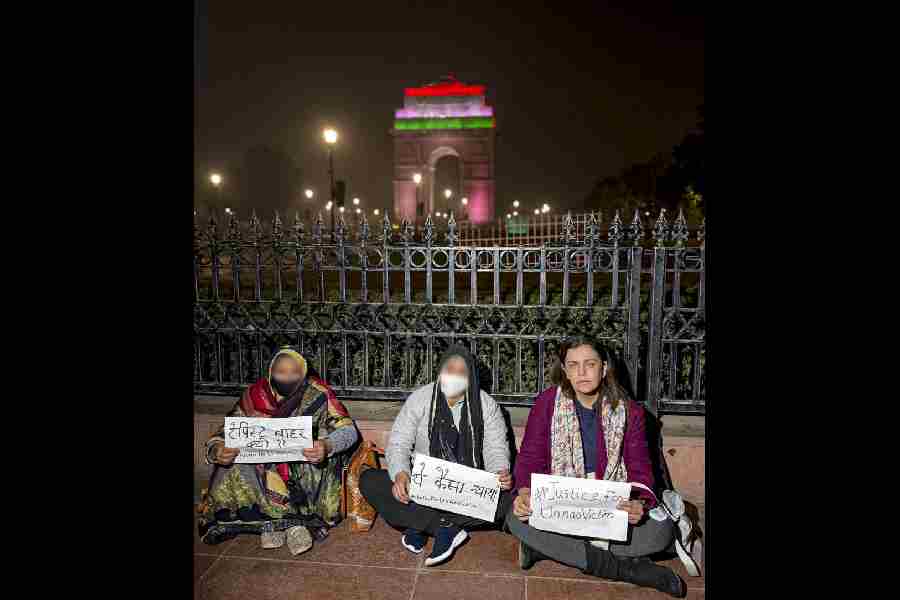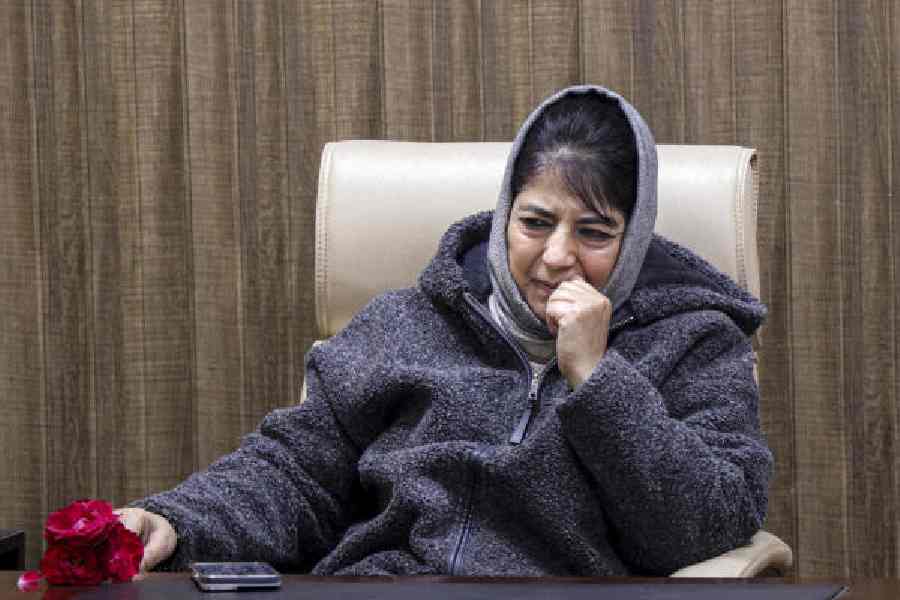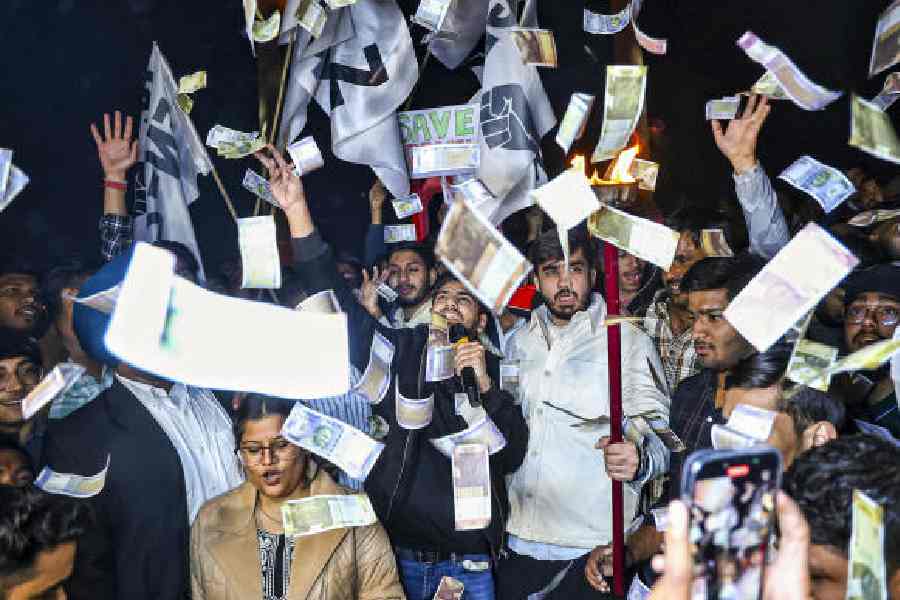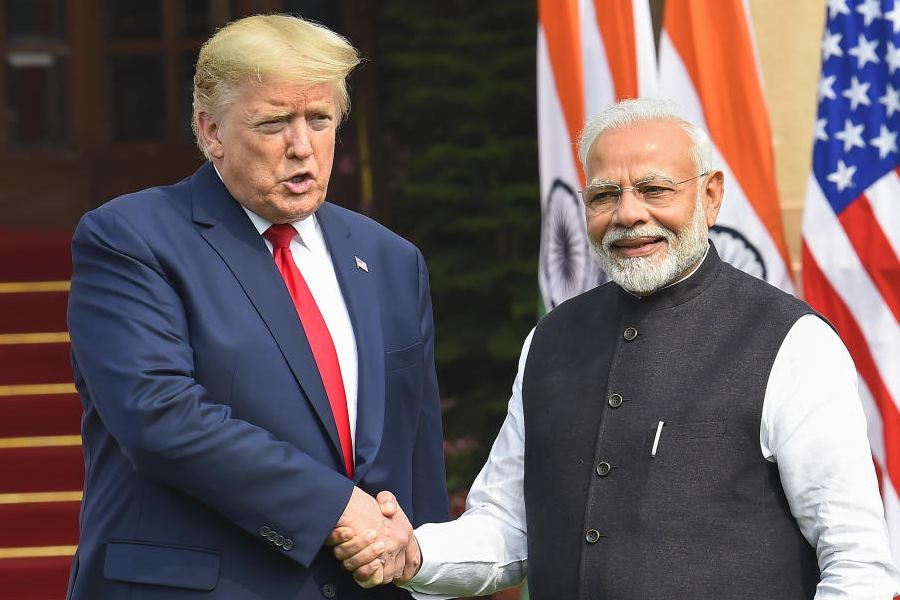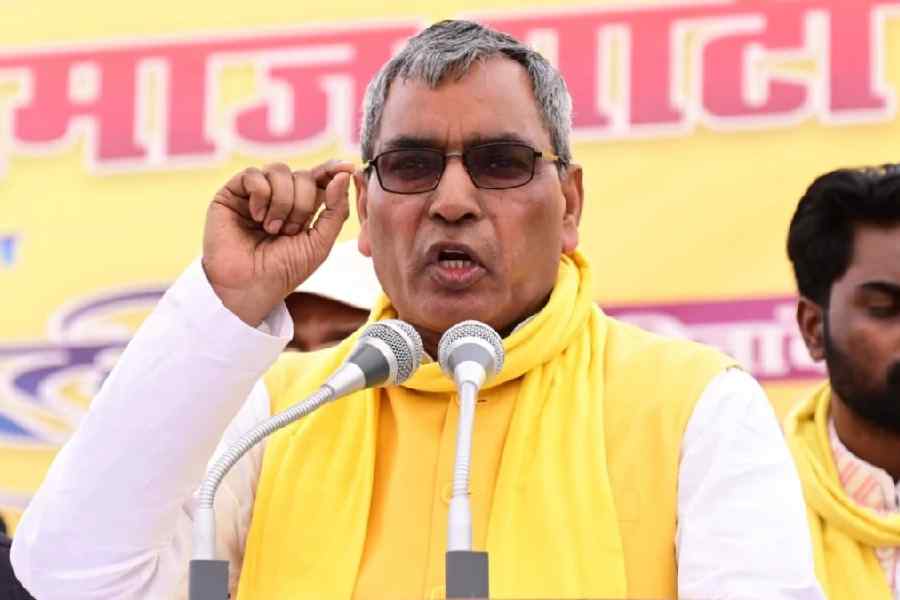Season 2 of Pataal Lok, with Jaideep Ahlawat’s Hathiram Chaudhary once again leading from the front, is a huge winner. t2 caught up with Jaideep and the show’s creator Sudip Sharma for a chat about the Prime Video series.
Paatal Lok has a rare Season 2 that has surpassed Season 1. Has the audience feedback reflected that?
Jaideep Ahlawat: I was not in a good space to take in all the feedback (Jaideep lost his father a few days before the release of Season 2), but I have been reading comments and reviews. I am happy that the season has been unanimously liked. It was a difficult season to make in terms of its world. I am happy that what we wanted to convey has reached the audience and that they have loved it.
Sudip Sharma: I have a problem of not being able to remember the good things that are said about my work... I only tend to remember the bad things (laughs). Even when I am reading reviews, I skip through the good parts and look for things that were not liked. That is where my learning comes from. Overall, it has been very heartening to read all the appreciation. This is a reminder that I have to keep working in the right direction.
Did the second season jinx play on your mind? As Jaideep was saying, it is a whole new world in Season 2... Northeast India has rarely been presented as authentically in the commercial Hindi space...
Sudip: That is the reason we chose a different world. I wanted to stay away from anything that would make the audience feel that we were repeating the so-called formula of the first season. When we started discussing the new season in the writers’ room, the first question was how do we take it away from the heartland of Uttar Pradesh and Bundelkhand. We wanted to get away as farther as we could from there and the remotest corner relative to that was Nagaland.
It is a surface-level reading to say what worked for the first season was Hathoda Tyagi (played by Abhishek Banerjee) or Bundelkhand or that Hathiram (played by Jaideep) is a particular kind of character. What worked was that we told a very fresh story. In the second season, I knew it had to be another fresh story if we wanted to achieve all, and more, of what we had in Season 1.
Sudip, you spent your growing-up years in the ’80s and ’90s in the insurgency-stricken Northeast. What was it like getting back to home turf and tackling the politics of the region, which is a very tricky terrain? You have created a balance in showing that it is a neglected part of the country but also focused on the rampant othering of ‘outsiders’ that takes place there...
Sudip: It was very important for me to maintain that balance. We were a family of Marwaris in Assam in the 1980s. I have lost friends and family to the insurgency. I have empathy for Northeast India in many ways. But as you said, it is a very prickly debate. Hence, it was very important for me to show both sides of the story.
The problem is that most of the time, in the mainstream, when we are telling a story about the Northeast, we tend to take a condescending approach. I felt that they hadn’t got their due and I wanted to represent them authentically on screen. The region is as complex as any other part of the country and they have their grievances with the mainland. But it was also important to show the deep-rooted problems in the region.
In the first season, Hathiram is frustrated with the system and seeks constant validation. In Season 2, his lot in life may not have improved, but he seems more at peace. Jaideep, would that be a fair estimate of where he stands this season?
Jaideep: The character has definitely taken a leap this season. As you said, he is more at peace with himself, with the surroundings and the people who are important to him. He has understood that the system is a machine in itself where every purza (part) is well oiled. If one needs to change the system, then every part needs to be changed, which is almost impossible. Hathiram is not angry anymore. He is not on a mission to prove himself because despite doing everything he could during the investigation of the case in the first season, he was on the verge of dying in pursuit of the truth. But he realises that the world outside is the same, that very few people know what he did.
Also, Hathiram and Ansari (played by Ishwak Singh) have a different relationship now. In Season 2, the story goes two years ahead. Ansari is at a place which is now physically and mentally very far from Hathiram. It is a bittersweet feeling for Hathiram. He feels happy that a man he trained is now his boss. He misses Ansari, but he is otherwise at peace. He starts a new journey and he knows deep down that he is the best investigating officer there ever can be...
Sudip, what went into creating and sustaining the emotional bond between Hathiram and Ansari even though they operate in such a dark and largely testosterone-powered world? It, of course, culminates in Hathiram discovering Ansari’s sexual orientation and that heartwarming conversation they share in the jeep right after....
Sudip: It was very important for us to build that. We have never really seen any of these two cops as being testosterone-driven... that is why there is an inner life to Hathiram. He is not the fittest guy around. He has middle-class problems of not having enough money. The son wants to go to Australia for his education, the wife (played by Gul Panag) wants to work but Hathiram feels it is because she thinks that he is not earning enough. In that sense, he is flesh and blood, very much like one of us.
That particular line (where Hathiram tells Ansari that while he may not understand Ansari being gay, but if it feels right to him, Ansari should not listen to anyone else) took us some arriving at in the writers’ room. There was a lot of debate about how Hathiram is going to react to that (Ansari being homosexual)... is he going to get stunned into silence or is he going to react negatively? Honestly, I never had any doubt that this is how Hathiram would react. That is because Hathiram has a lot of empathy. He is liberal in a non-obvious way. When we call someone liberal, we expect them to be urban or from a particular socio-economic background. He has none of that, but where his liberal values come from is his sense of empathy. That is what drove the conversation in that particular scene.
Even in the first season, Ansari faced some discrimination for his religion but it never mattered to Hathiram. Even the background of those four assassins didn’t matter to him. That is who he is and that is why the audience loves him. He comes straight to the point, which is what he does in that particular scene. Rather than giving false sympathy or trying to be any other way, he says: ‘Look, this is who I am, this is all I know... but if this feels right to you, please go ahead.’ When Ansari asks him not to speak about it in office, that is when Hathiram snaps because he feels that he is being wrongly judged. And then we wanted to inject some humour in the end with Hathiram asking Ansari: ‘Tum logo mein bhi jhagda hota hai kya?’
What also lends authenticity to Season 2 is the generous use of Nagamese, sometimes even more than Hindi. Did you ever feel that could alienate a section of the audience?
Sudip: I like not to think about it, but people do bring it to my attention sometimes. But then, in the last few years, audiences have had exposure to Korean shows and content like Money Heist, which they have watched with subtitles. If they can take to a language which is not even from the country, why not Nagamese? Emotions are universal. In a country like India, the language changes every 50km... there are even many variations of the same language. We have to understand that audiences are ready for it and that is the only way to make our cinema more authentic.
Jaideep, what was it like shooting in that part of the country?
Jaideep: It was my first time there and I loved it every day. The locations were lovely, as were the people. To see the kind of love they have for their culture and music was special. The shoot was difficult because we shot a very hostile part of the script there. I had to do a lot of action scenes. It was also very cold there, but I loved it.
It was wonderful to see unconventional casting in the form of Assamese filmmaker Jahnu Barua and former Indian Idol winner Prashant Tamang. Were they your first choices for their respective parts?
Sudip: Some of them were definitely the first choices for their particular parts. Nikita Grover from Casting Bay did a fantastic job. She spent months finding these faces. Nagaland doesn’t have a well-established film or television industry and hence, we didn’t have any established actors to tap into. We had to ‘create’ actors. Nikita would literally knock on doors, go to music concerts, tap musicians and ask them to give an audition. She would train them to give auditions and then train them to to act. It was phenomenal.
When we started the conversation, the first thing I told them was not to bring two names to me — Danny Denzongpa and Meiyang Chang. They are great actors, but the idea was to be fresh and go beyond the obvious. Avinash (Arun Dhaware, the director of Season 2) came up with the idea of Jahnu sir for the role of Uncle Ken. He told us he had never acted before, but he read the script and loved it and came on board. Till the end, he kept telling me: ‘I will never forgive the two of you for making me do this!’ But it was so much joy.
There was one day, while we were shooting the funeral scene, when we had almost all the major actors on set... Jahnu sir, Nagesh (Kukunoor), Prashant (Tamang), Jaideep bhai, Tillotama (Shome), Ishwak.... It was just beautiful to be there among all of them and to realise this is the diversity our country has to offer in terms of actors, faces, performances... it was magical.

